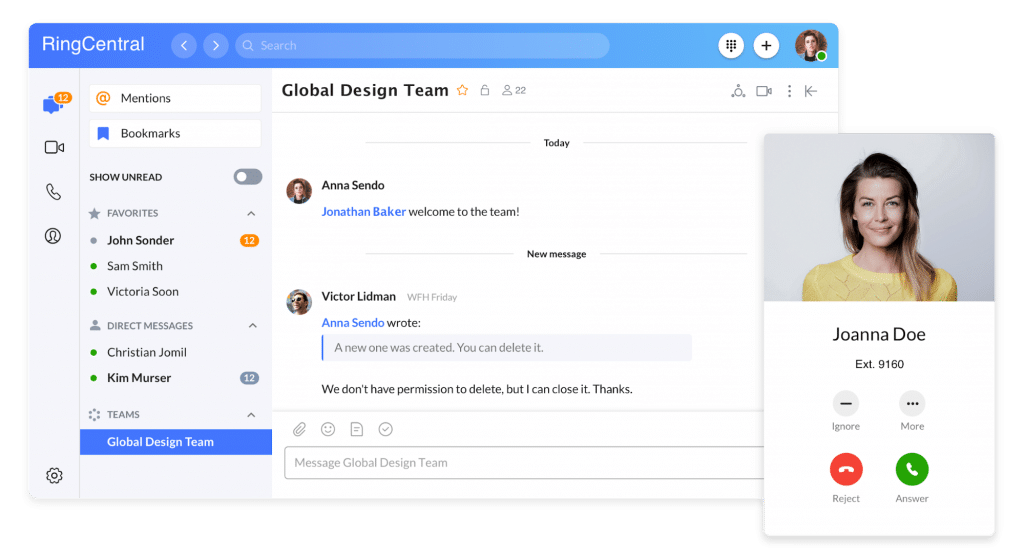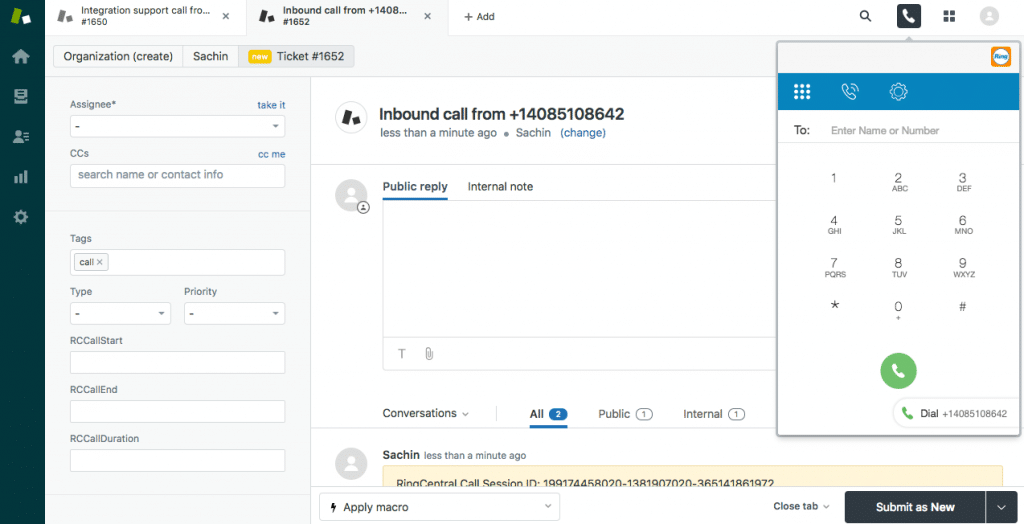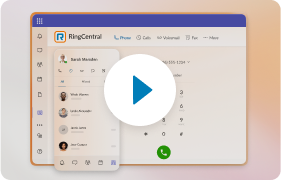Just like any other skill, collaboration skills need to be practiced.
Let’s face it. Attempting to be a lone wolf business owner who won’t rely on anyone else is a one-way ticket to burning out.
Combining talents and working together with others will often result in solutions that individuals probably would never have found on their own. But managing egos, staying respectful, and knowing how to communicate with different types of people isn’t always easy.
So, training yourself to be a better addition to any team is a worthwhile goal—especially in business.
In this post, we’ll look at:
- What we mean when we say “collaboration skills”
- Why collaboration is so important
- 5 key skills to improve collaboration
- A collaboration skills checklist
What do we mean by “collaboration skills?”
Here’s the definition of collaboration (thanks, Oxford English Dictionary):
Collaboration (noun): the act of working with another person or group of people to create or produce something.
We could say that collaboration itself is a skill, and that would be true. But in order to improve it, you have to recognize that collaboration is made up of many different skills. You have to know how to openly communicate, how to actively listen, and how to learn about and better understand your teammates—the list goes on. We’ll get into the specifics below.
Why is collaboration so important?
Great endeavors are the result of effective teamwork.
If you own a business, you’ll need help. It’s impossible to be an expert in every field and do every single task well. You can’t be your own accountant, salesperson, cleaner, developer, marketer, and lawyer. (Well, most of us can’t.)
Speaking of lawyers, let’s use a popular TV show as an example: Suits, USA Network’s drama about lawyers at a top-tier law firm in New York City. In Suits, the two leads (the senior partner and his associate), along with other lawyers at the firm, are constantly going behind each other’s backs to find evidence, confront witnesses, and solve cases.
Instead of keeping each other informed, discussions usually end with snappy lines like this:
“Where do you think you’re going?”
“To fix this.” (Character is already striding away as they say this line.)
Sure, that makes for great dramatic TV. But can you imagine working with someone like this in real life? You’d probably end up shouting something like “JUST TELL ME WHAT YOU’RE GOING TO DO!” at least three times per week.
Instead of dealing with that, most people would prefer to know what their teammates are working on and keep communication channels open. Fostering a collaborative environment will encourage employees to stay accessible to each other, so that they can solve problems together instead of alone.
5 key skills to improve collaboration
Collaboration is made up of many different skills. In this section, we’ve identified five of the most important ones—and supplied concrete tips for how to improve each skill.
1. Openness
We’re starting with openness because it impacts every aspect of building a collaborative culture.
Being open to new ideas and suggestions is an essential aspect of teamwork. If you go into a discussion with your mind already made up, then you won’t be listening to your teammates, even if they have a better idea. This kind of single-mindedness is not great for business in the long run. It hinders your ability to adapt and evolve—and if you’re managing a small business, you’ll need to be able to do that. Often.
When ideas or solutions are proposed, look at them from different angles instead of immediately seizing on the negatives. Try this: next time you’re in a meeting, and a colleague proposes an idea that conflicts with yours, take a moment before you say anything. Ask yourself, “How is this idea better than mine?”
By objectively examining alternate proposals, you’ll see them more clearly. Maybe you’ll agree that it’s a better idea than what you had come up with. Or, maybe you’ll find that the best solution is to merge the two ideas, combining the best aspects of both. Which leads us to our next skill…
2. Communication
Communication is also a pretty broad term, but we’ll try to narrow the focus for the purpose of this article.
Respect is a building block of communication. In any exchange with any of your team members, if you’re not being respectful of them and their ideas, you might be creating problems down the road.
Let’s say a colleague has an idea that just isn’t good. Instead of refusing it without an explanation (or even worse, being condescending about it), it’s better to objectively explain why it won’t work in a manner that’s both respectful and honest. If you’re not able to do that, perhaps the idea isn’t as bad as you think.
Along with respect, clarity is the other building block. No matter how clearly you think you’ve explained yourself or how good you think your communication techniques are, it never hurts to go the extra mile to make sure that your teammates understand instructions or ideas.
If you’re able to explain your ideas and instructions clearly, you already have a big head start on improving your collaboration skills. And this goes both ways: if a teammate isn’t articulating their ideas well, make an effort to understand them. There could be a few different reasons for their lack of clarity, as you’ll see in the next section on our third skill.
Here are a few virtual team building activities to help you build those communication skills with your teammates.
3. Enablement
It can be easy to forget that people have different styles of communication. Meetings tend to be dominated by extroverts, so team members who are less comfortable with public speaking might not want to challenge the status quo.
So, enablement is another great building block for engineering collaboration on a team. Learning how to empower your teammates will end up enriching the whole team—especially if you need cross-functional collaboration for a certain project.
An easy first step for this is making sure, during meetings, that everyone’s voice is heard. If you have a colleague who you know is nervous or shy, you could also talk to them before or after a meeting and give them the choice of letting you speak for their idea. They can then chime in with support if necessary.
Sometimes, colleagues might prefer typing out their thoughts via email or messaging app. Try this: if you’re a manager and have a shy colleague, ask them which communication style they prefer—being encouraged to speak up at meetings, talking one-on-one outside of meetings, or writing text-based communication. This will show them that you care about them and want their voice to be heard in whatever way is best for them.
Do you work remotely or are you running a remote team? You need a collaboration hub—or at the very least, some kind of remote working tool.
RingCentral’s desktop and mobile apps give you multi-channel communication across different devices—from messaging and phone calls to video conferencing—to suit any style of collaboration:
4. Organization
Collaboration without organization is a paradox. If you want to have effective collaboration in the workplace, it’s best to have a clear idea of who’s working on what.
This is where project management tools and workflow automation come in. For any team, especially larger ones, it’s crucial to have shared documentation of decisions and responsibilities. Again, RingCentral lets you create teams and manage tasks all within the platform, and you can even edit files and comment on them in real time:
Knowing which team member is working on which task will give you a better overview of your team’s actual capacity. And speaking of which, task automation is something useful to look into if you find that you or your team is juggling too many ad hoc and last-minute asks.
5. Adaptability
The final skill is arguably the hardest one to practice, as it can only be improved when you’re confronted with change.
Things don’t always go according to plan. While you may be perfectly in control of your own business, there will always be something that can go wrong: it could be your supply chain, it could be that a teammate falls ill—or it could even be a global pandemic.
So, adaptability is your secret weapon to winning in an uncertain world. If things go wrong, don’t freak out or lose your temper, especially in front of your team. Stay calm and think logically about how to respond, while fielding ideas and suggestions from teammates.
Again, having good communication tools can make this process a lot easier—some people might want to talk face-to-face, while others would rather send you a message. Give them options:

Remind them that you’re in this together, and that you’ll all pull through.
*Bonus skill – 6. Tech-savviness
This post has focused mostly on collaborating with your team, but remember that customer collaboration can be powerful, too. And while some brick-and-mortar businesses are collaborating with customers just fine when they come into your store, online customer service is becoming more and more of a customer expectation.
And if your customers want to collaborate with you online, you have to be able to meet them there. (It helps with effective teamwork too.)
Can you quickly and efficiently connect customers with someone on your customer support team? How quickly are you picking up the phone or answering customers’ questions? You could be doing all of this manually, but once you grow to a certain point, you’ll need something like a contact center solution. (These usually come with real-time reports and in-depth customer surveys, both of which are very helpful if you’re serious about improving your customer experience.)
Speaking of which, tools can be collaborative too. Ideally, the software and apps you’re using already integrate with each other. For example, RingCentral integrates with many popular business solutions and apps, from Google Drive to Salesforce and Zendesk:

A collaboration skills checklist
To help you keep these skills in mind, here’s an easy-to-use checklist. Reviewing this every now and then, especially after an important meeting or a momentous day, is a great way to make sure you’re continuously improving.
- Was I open to new ideas?
- Did I objectively try to find ways in which they were superior to my proposed ideas?
- Was I respectful in how I communicated with my teammates?
- Did I ensure that my communications were clear and straightforward? Did I understand communications from my teammates, and if not, did I ask for clarification?
- Did I enable my teammates?
- Did I make sure that everyone’s voice was heard?
- Did I touch base with teammates today to make sure that nobody’s overwhelmed?
- Did a problem arise today that required a change?
- Did I keep my cool and remain calm in front of my teammates?
Keep building those collaboration skills
Collaboration is an incredibly important skill, made up of more than the sum of its parts—just like an effective team.
So keep an open mind, keep communication flowing, and keep improving to keep yourself and your team’s collaboration skills at their best.
Updated Mar 13, 2025













